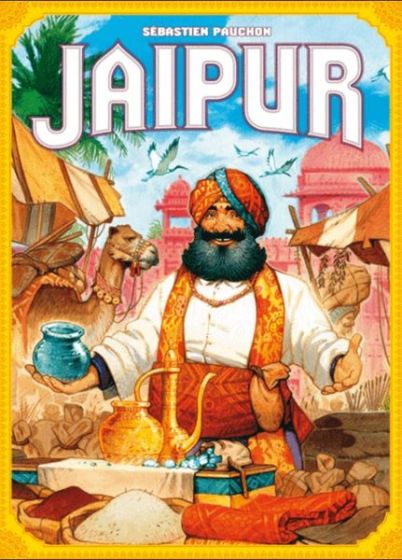Jaipur 2nd Edition
-
Παίχτες: 2
-
Ηλικία: 10+
-
Γλώσσες: Αγγλικά
Cards will either represent camels or one of six goods. From a central market of five cards, you will be taking either any one card, all the camels, or exchanging any number of cards. When you sell, you will take matching tokens for each good that you sell. Good tokens start off more valuable and decrease in value as the game goes on. But on any one turn, you may only sell one type of good, and if it’s one of the most valuable, you must sell a minimum of two cards. Also, if you sell three or more cards, you will earn a bonus scoring token.
As a result, selling is both a marathon and a sprint. Getting one or two high scoring tokens is great, but is it better to wait and sell a job lot? Camels can never be sold, but don’t count towards your hand limit and can be used freely in exchanges. Exchanges are really useful because you control what goes back into the market for your opponent to choose from. ON the other hand, when you draw one card or take camels, the market is refilled from the deck, which could hand your opponent first dibs on the best cards.
So, although you don’t always want your opponent to be 'cameled up', it can be a good way to tempt them into refreshing the market for you. Of course, the person with the most camels at the end of the game also gains five extra points, which can prove crucial.
Jaipur 2nd Edition is a tight, fast, and clever game with lots of great decision-making. You will find yourself battling the same person over and over to settle once and for all who really is worth the most camels!













